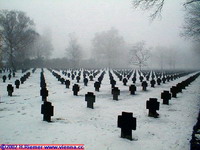Login form
World War I

Ten million men from 32 countries died fighting in the war of 1914-1918. It was called the Great War. We know it now as World War I.
World War I pitted the Allied Powers against the Central Powers. At the start of the war, the Allied Powers included Britain, France, and Russia. Germany and Austria-Hungary were the Central Powers. Other countries later joined each side. The United States entered the war on the side of the Allied Powers in 1917.
WHY WAR CAME
For 100 years, the nations of Europe had tried to avoid war with one another. No country was allowed to get too powerful. If one did, others would form an alliance against it.
William II, the kaiser (emperor) of Germany, built up his country’s army, navy, and industry. Germany began seizing territories in Africa and the Pacific as colonies.
These moves worried other nations, especially France, Britain, and Russia. France and Britain had their own colonial empires. They agreed to support each other if war came.
Austria-Hungary supported Germany. Its empire ruled many countries in eastern and southern Europe. Many of them wanted to break away from Austria-Hungary.
One nation eager for independence was Serbia. On June 28, 1914, a Serb patriot murdered Francis Ferdinand, heir to the throne of Austria-Hungary.
AUGUST 1914
Nobody expected the murder of Francis Ferdinand to start a war. But it set off a chain reaction. Austria-Hungary moved to crush Serbia. Russia mobilized its army to support Serbia. So Germany sent troops to oppose Russia. Germany also massed troops on its border with France. France prepared to resist Germany.
War broke out on August 4, 1914. Germany invaded Belgium. That brought Britain into the war. The Germans pushed into France. They seemed headed for a quick victory. But French and British forces stopped them.
DEADLOCK IN THE TRENCHES
By the end of 1914, the war had settled into a deadlock. The armies dug protective trenches that ran for hundreds of miles. Soldiers lived in these slits in the ground. They ate and slept in them.
When soldiers came out of their trenches to attack, machine guns cut them down. Sometimes, soldiers met poison gas.
For three years, there were bloody battles between the trench lines. Neither side gained an advantage.
Germany had the strongest army in Europe. But it was fighting on two battlefronts—against France on the western front and against Russia on the eastern front.
A EUROPEAN WAR BECOMES A WORLD WAR
The Ottoman (Turkish) Empire entered the war on the side of the Central Powers. Italy entered on the Allied side. German and Allied troops battled in Asia and Africa for control of colonies there.
In the Middle East, the British organized Arab tribesmen to fight against the Ottomans. They were led by British colonel T. E. Lawrence, who is better known as Lawrence of Arabia.
Japan was a rising power in Asia. It joined the Allied Powers. Japan seized German-controlled islands in the Pacific Ocean.
THE TIDE TURNS
In 1917, a revolution in Russia brought a Communist government to power. It made peace with the Central Powers. The Germans were now fighting on only one front. But they could not take advantage. That was because the United States had entered the war.
Most Americans wanted no part of a European war. But the United States government was shipping supplies to the Allies. German submarines sank the ships. In April 1917, the Congress of the United States declared war against the Central Powers.
American troops did not reach Europe in large numbers until 1918. They soon turned the tide of battle. In July, Americans joined a huge Allied attack. By late summer, the Central Powers were in retreat.
On November 11, 1918, the guns fell silent. The Great War was over.
AFTER THE WAR
The war had caused terrible destruction and death across Europe. American president Woodrow Wilson called it “The war to end all wars.” He tried to work out a peace plan that would be fair. The Allies didn’t want it. Even Americans rejected it.
The map of Europe was redrawn. The Austro-Hungarian and Ottoman empires were broken up.
Germany lost some of its territory. It was forced to pay huge amounts of money for war damage. France and Britain took over Germany’s colonies.
This was not peace, one French general complained. It turned out to be only a 21-year truce. In 1939, World War II began.
Source: Microsoft ® Encarta

